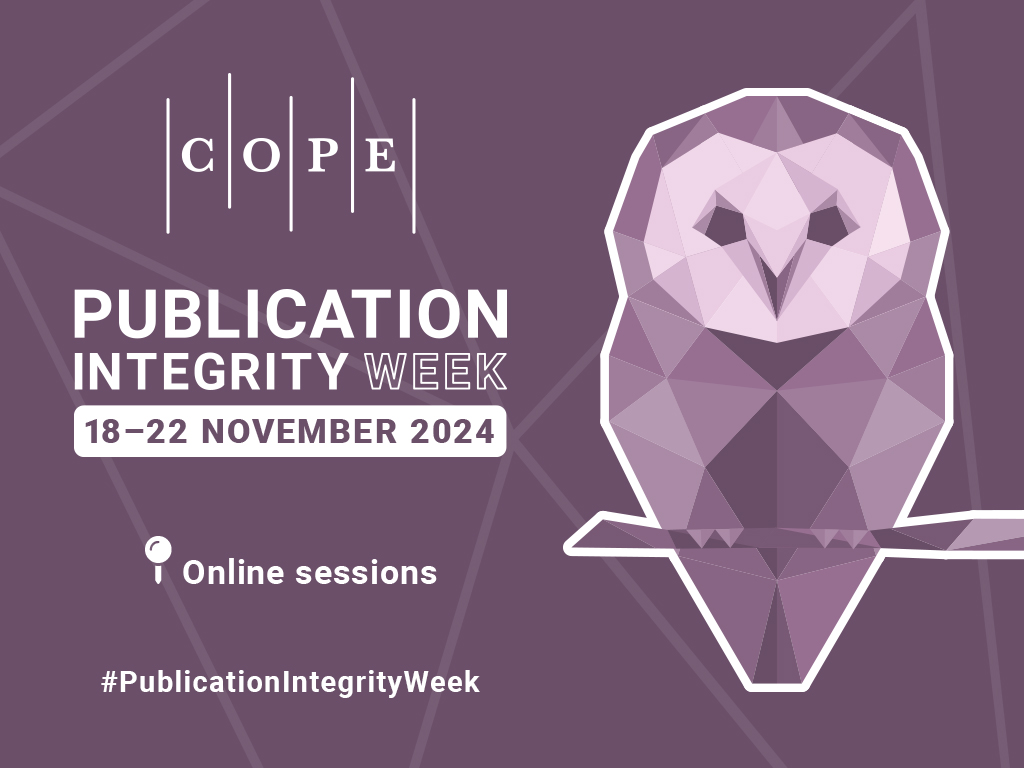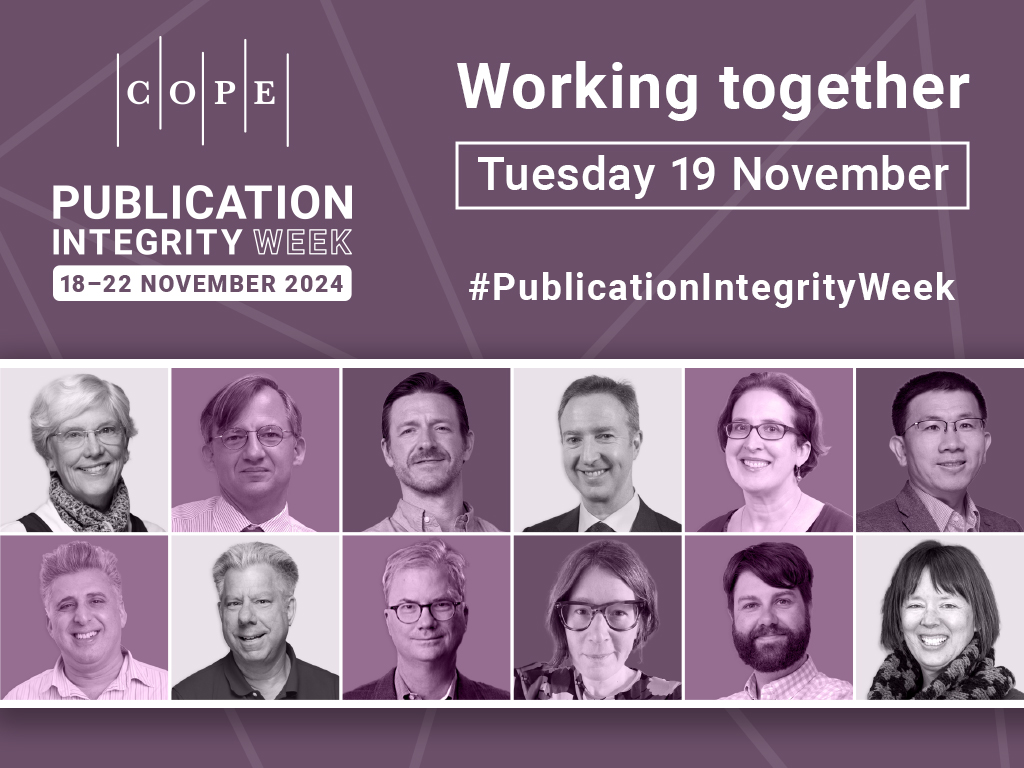COPE brings together all those involved in scholarly research and its publication to strengthen the network of support, education and debate in publication ethics
Our core practices
Core practices are the policies and practices journals and publishers need, to reach the highest standards in publication ethics. We include cases with advice, guidance for day-to-day practice, education modules and events on topical issues, to support journals and publishers fulfil their policies.
Guidance & discussion
Are you interested in learning more, and taking part in discussions, about plagiarism, data, paper mills, the future of publication ethics, and how we can work together to solve publication integrity issues? Register for Publication Integrity Week!
We are facing new challenges and ways of thinking about plagiarism. The Monday session of Publication Integrity Week deals with some of these new perspectives and outline what they mean for the world of scholarly publishing.
Across three different panels we will hear from experts on how we can use AI to detect ethical issues, how ethics can be applied to publications beyond books and journals, and how peer review is changing in the modern age.
Learn how the United2Act project on tackling paper mills is progressing, hear from an expert on authorship for sale, and take part in a practical workshop on handling cases of suspected paper mill activity.
Publication Integrity Week hosts a day with a special focus on journals, publishers, and university and research institutes working together to solve publication integrity issues. This event is open to all working in, or interested in, publication integrity.
The speakers in this session will address data issues from a range of perspectives, from considering equality and diversity, to handling qualitative data, and implementing data sharing policies.
There's no simple answer to "What percentage of plagiarism is okay?". What matters is the nature and degree of duplication which indicates whether an editor will consider it plagiarism.
Exploring some of the potential barriers faced by people communicating in a second or additional language, with a range of positive actions for the scholarly publishing industry, this editorial asks whether we can make English-language publishing more accessible. Responses from COPE Members accompany the editorial with further insight into publishing in English.


